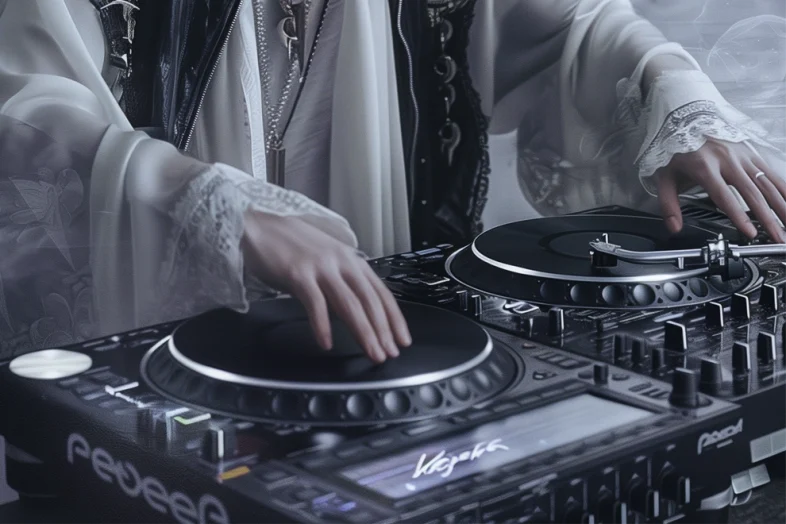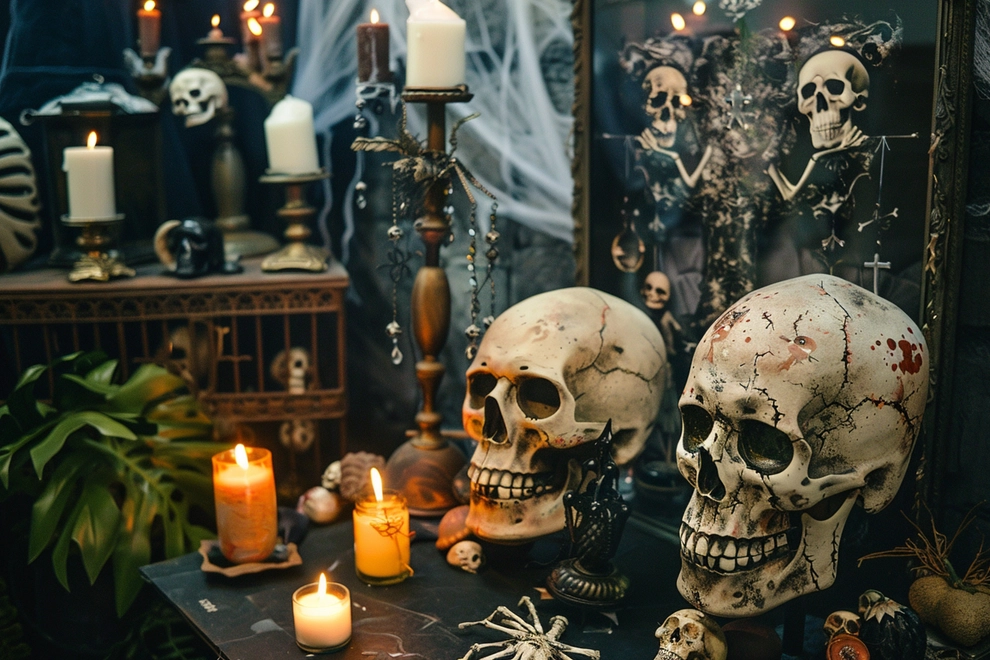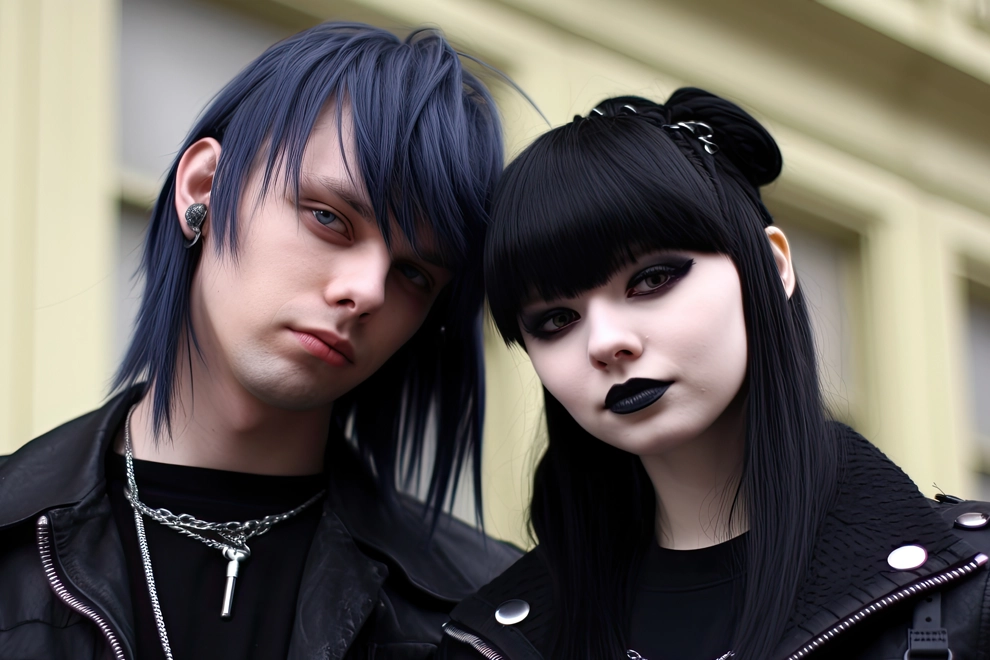
What is gothic Music?
In the Shadows of Sound: Exploring the Depths of Goth Music
In the realm of music, where melodies weave tales of sorrow and introspection, there exists a genre that speaks to those who find solace in the darker corners of existence. This genre, known as goth music, transcends conventional labels to evoke a profound journey through emotions and imagination. Originating in the late 1970s and flourishing through the 1980s, goth music emerged as a defiant yet introspective response to the vibrant yet often superficial mainstream music of its time. It delves deep into themes of existential angst, love and loss, mortality, and the macabre.
Origins and Evolution
Goth music’s roots can be traced back to the post-punk movement of the late 1970s, particularly in the United Kingdom. Bands like Bauhaus, Siouxsie and the Banshees, and The Cure were pivotal in shaping the early sound of goth music. Their music combined the raw energy of punk with a more atmospheric and melancholic tone, characterized by haunting vocals, swirling guitars, and atmospheric keyboards.
As the genre evolved, it branched out into various subgenres and regional scenes. In the UK, bands like Sisters of Mercy and Fields of the Nephilim embraced a darker, more dramatic sound often referred to as “gothic rock.” Meanwhile, in the United States, bands such as Christian Death and Rozz Williams’s Shadow Project pioneered a more experimental and theatrical approach, blending elements of punk, glam rock, and industrial music.
Musical Characteristics
Goth music is distinguished by its brooding atmospheres, rich textures, and introspective lyrics. Musically, it often features:
- Guitar-driven melodies: Guitars in goth music can range from shimmering and ethereal to dark and distorted, creating a haunting backdrop for the vocals.
- Atmospheric keyboards: Synthesizers and keyboards play a crucial role in creating the atmospheric and sometimes orchestral soundscapes that define goth music.
- Haunting vocals: Vocalists in goth music often employ a wide range of styles, from deep and baritone to ethereal and haunting, reflecting the genre’s emotional depth.
Lyrically, goth music explores themes of:
- Existentialism and introspection: Many goth lyrics delve into profound questions about life, death, identity, and the human condition.
- Romanticism: The genre often embraces the beauty of melancholy and the allure of the macabre, drawing inspiration from Gothic literature and art.
Cultural and Aesthetic Influences
Beyond its musical characteristics, goth music is deeply intertwined with a distinct cultural and aesthetic identity. The goth subculture embraces:
- Fashion: Gothic fashion is characterized by its dark and romantic aesthetics, often featuring black clothing, lace, velvet, corsets, and dramatic makeup.
- Literature and art: Goths draw inspiration from Gothic literature, Romantic poetry, horror fiction, and supernatural folklore. Writers like Edgar Allan Poe, Mary Shelley, and Bram Stoker are revered for their contributions to the genre’s aesthetic and thematic palette.
- Architecture: Gothic architecture, with its ornate and often imposing structures, serves as a visual metaphor for the genre’s grandeur and introspection.
Subgenres and Diversity
Over the decades, goth music has diversified into various subgenres, each with its own distinct sound and cultural influences:
- Darkwave: Known for its cold, minimalistic electronic soundscapes and ethereal vocals, darkwave emerged in the 1980s as a subgenre of goth music.
- Gothic metal: Combining elements of goth rock with heavy metal, gothic metal incorporates dark, symphonic melodies and often features operatic vocals.
- Ethereal wave: Ethereal wave is characterized by its dreamy and atmospheric sound, often blending goth rock with ambient and shoegaze influences.
Influence and Legacy
Despite its niche appeal, goth music has had a significant impact on popular culture and music history. Its influence can be seen in:
- Fashion and style: Elements of gothic fashion have been incorporated into mainstream fashion trends, influencing designers, musicians, and artists worldwide.
- Literature and film: Gothic themes and aesthetics continue to inspire writers, filmmakers, and visual artists, shaping genres such as horror, fantasy, and romanticism.
- Music: Many contemporary bands and artists draw inspiration from goth music, incorporating its melancholic melodies and introspective lyrics into their own musical styles.
Goth music is more than just a genre; it is a cultural phenomenon that resonates deeply with those who seek beauty in darkness and meaning in melancholy. Through its haunting melodies, introspective lyrics, and distinct aesthetic, goth music invites listeners to explore the depths of human emotion and imagination. Whether you are drawn to its atmospheric soundscapes, poetic lyricism, or evocative visuals, goth music continues to captivate and inspire, offering a sanctuary for those who find solace in the shadows.
Join us as we delve deeper into the enigmatic world of goth music, where every chord struck and every lyric sung reveals new dimensions of darkness and light. Explore the legacy of goth music and discover why its allure continues to endure, influencing generations of artists and listeners alike.





Oliver
Fantastic read! I’ve always been fascinated by goth music, but this blog post provided a deeper understanding of its impact and legacy. I’m inspired to explore more of this shadowy realm!
Ava
The section on subgenres was incredibly insightful. I didn’t realize how diverse goth music really is. The breakdown of darkwave, gothic metal, and ethereal wave was especially enlightening.
Liam
Such a thorough and evocative piece! I appreciate the connections made between goth music and gothic literature and art. It really highlights the genre’s rich cultural backdrop.
Adam
A hauntingly beautiful exploration of goth music! The history and influence of this genre are captivating. Truly a journey into the dark and melodic.
Mery
I loved how you delved into the origins and evolution of goth music. It’s amazing to see how this genre has evolved while maintaining its deep, introspective essence.
Sophia
This article perfectly captures the allure of goth music. The descriptions of its musical and lyrical characteristics are spot on. Thank you for this darkly immersive read!